ERF 30th Annual Conference: Tragedies of Regional Conflicts and Promises of Peacebuilding
FromApr 21, 2024 To Apr 23, 2024
Hybrid Event
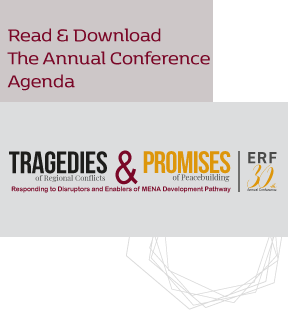 Hosted by Mohammed VI Polytechnic University (UM6P), Africa Institute for Research in Economics and Social Sciences (AIRESS)
Hosted by Mohammed VI Polytechnic University (UM6P), Africa Institute for Research in Economics and Social Sciences (AIRESS)
Rabat, Morocco
The ERF 30th Annual Conference aims to address the unprecedented regional challenges and to respond to the paramount global disruptors to envision a more resilient future, systems and institutions. ERF conferences provide a multi-stakeholder platform bringing together thought leaders, distinguished researchers and policymakers to discuss and debate pertinent global and regional perspectives to build towards a more peaceful prosperous future for generations to come.
The MENA region has more than its fair share of conflicts, which set the region into a path of human suffering, despair and instability. The Arab-Israeli conflict has become an inter-generational impediment to regional peace, development and cooperation for almost eight decades. It has so far plunged the region into four major regional wars and several uprisings by the Palestinian people, who continue to resist occupation and strive for their legitimate right to self-determination and statehood. The most recent outbreak of the tragic violence in Gaza is a natural consequence of the lack of will and commitment by the regional and international communities to achieve a just and amicable resolution of the Palestinian question, leading to a two-state solution.
Moreover, the aftermath of the Arab Spring ushered the region into political instability, even large-scale civil wars in socially fractionalized Arab countries affecting both the Asian and African wings of the Arab world. Instead of propelling the region into a wave of national renewal, democracy and economic renaissance, the unintended consequences of the Arab uprisings have further aggravated conflicts and instability in the region.
The state of conflicts and instability degraded state capacity, government effectiveness and public policy, resulting in unsustainable macroeconomic imbalances, high indebtedness and disappointing growth performance. Therefore, most economies of the region became exposed to the recent global shocks and associated crises – starting with the 2008-9 financial crisis, followed by the global COVID-19 pandemic, the rivalry between China and the United States and finally Russia’s invasion of Ukraine.
The impact of these crises has taken a toll on the region. This is clearly reflected in the debt-to-GDP ratios which jumped by 10 to 20 percentage points between 2019 and 2022, and are now above 80% for all countries. To aggravate matters, in 2020, the region’s real output contracted by 3.8%. The World Bank projects growth in MENA to decelerate to 3.5 percent in 2023 and to 2.7 percent in 2024.
The regional slowdown is mainly on account of a fading boom in net oil exporters where growth is expected to slow to 3.3 and 2.3 percent in 2023 and 2024, respectively, from 6.1 percent in 2022. This is also aggravated by the region’s rising ratio of interest payments to revenue, which has more than doubled over the past decade and is now close to four times the ratio in advanced economies.
As of November 30, 2023, more than 50% of low-income countries (LICs) globally are assessed by the IMF as being at high risk or already in debt distress. The debt crises made reviving investment and restoring growth impossible, while the sluggish growth has, in turn, contributed to the explosive debt dynamics.
Titled Tragedies of Regional Conflicts and Promises of Peacebuilding: Responding to Disruptors and Enablers of MENA Development Pathway, the ERF 30th Annual Conference plenary sessions aim to examine and assess policy measures to build towards resilient post conflict economic systems, balancing technology and future of work, and exploring prospects towards regional cooperation and strategic industry 4.0 partnerships.
In addition to the plenary sessions outlined in this document, the conference agenda will include 20 sessions providing a platform for some 60 diverse papers spanning cross-cutting themes selected on basis of rigorous refereeing process in response to an open call for papers. In keeping with ERF tradition celebrating excellence and unveiling outstanding performance, ERF Best Papers will be acknowledged in the Closing Plenary.
The conference aims to bring together 120 – 130 participants in person. To further extend outreach and participation, hybrid arrangements are planned for to provide real time engagement opportunities in plenary sessions, special panels and selected parallel sessions. To maximize on outreach and uptake, planning is well in place for featuring the conference sessions and proceedings similar to the ERF 29th Annual Conference Risks and Opportunities in an Emerging World Order.
ERF gratefully acknowledges financial support to the ERF 30th annual conference from International Development Research Centre (IDRC), Agence Française de Développement (AFD) and University Mohammed VI Polytechnic (UM6P), Africa Institute for Research in Economics and Social Sciences (AIRESS).
Agenda
Opening and Plenary 1 – Panoramic Political Economy Perspective of MENA
Date
21/04/2024
Location
Hybrid Session
Time
From 9:00 am To 11:30 am
To set the analytical stage, this plenary would build on three flagship publications, namely: Economic Origins of Dictatorship and Democracy, proposing a theory of the emergence of and stability of democracy and dictatorship; Why Nations Fail: The Origins of Power, Prosperity, and Poverty sharing a theory of why some countries have flourished economically while others have fallen into poverty; and finally The Narrow Corridor: States, Society and the Fate of Liberty, examining the incessant and inevitable struggle between states and society, giving an account of the deep historical processes that have shaped the modern world.
All sessions follow Morocco (Casablanca) time zone
Speakers
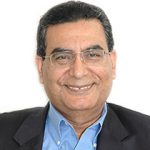
Research Fellows
Hassan Aly
Dean, Business School, Nile University
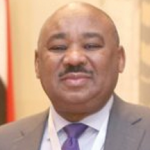
Research Fellows
Ibrahim Elbadawi
Development Studies & Research Forum, Dubai
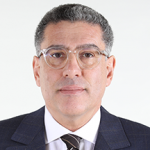
Speakers
Karim El Aynaoui
Executive Vice President of Mohammed VI Polytechnic...
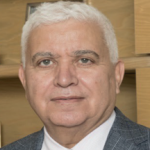
Speakers
Abderrahim Bouazza
General Director, Bank Al-Maghrib
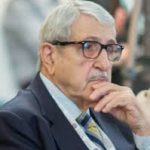
Senior Associates
Samir Makdisi
Professor Emeritus of Economics, American University of...
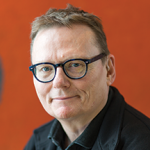
Senior Associates
James Robinson
Professor, University of Chicago
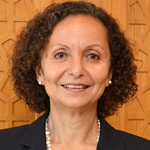
Research Fellows
Noha El-Mikawy
Dean, School of Global Affairs and Public...
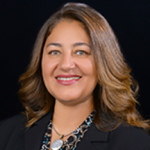
Speakers
Wessam El Beih
Regional Director, Middle East and North Africa,...
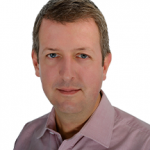
Speakers
Carl Bernadac
Deputy Executive Director of Innovation, Strategy and...
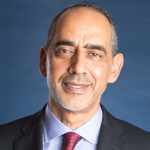
Research Fellows
Tarik Yousef
Senior Fellow, Middle East Council on Global...
Presentations
Videos
Plenary 2 – Prospects in the Middle East for Peaceful Resolution of Conflict – the Generational Disruptor and Impediment to Development in the Region
Date
21/04/2024
Location
Hybrid Session
Time
From 4:00 pm To 6:00 pm
The plenary aims to discuss the conflict in the Middle East as a generational disruptor and impediment to regional peace and development and the prospects for renewal and development under a just, amicable peaceful resolution, leading to the cherished goal of the two-state solution.
All sessions follow Morocco (Casablanca) time zone
Speakers

Research Fellows
Ibrahim Elbadawi
Development Studies & Research Forum, Dubai
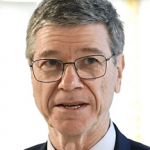
Speakers
Jeffrey Sachs
Director, Center for Sustainable Development, Columbia University
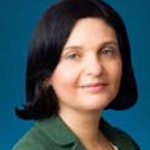
Speakers
Maha Yahya
Director, Malcolm H. Kerr, Carnegie Endowment for...
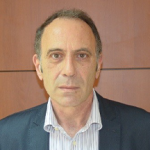
Speakers
Raja Khalidi
Director General, Palestine Economic Policy Research Institute...
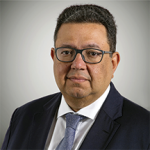
Senior Associates
Ziad Bahaa Eldin
Managing Partner, Thebes Consultancy
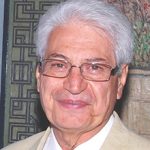
Research Fellows
Atif Kubursi
Professor, McMaster University
Presentations
Videos
Agenda
Plenary 3 – SDG Stimulus to Deliver Agenda 2030
Date
22/04/2024
Location
Hybrid Event
Time
From 9:00 am To 5:00 pm
To deal with the multiple shocks that are threatening to further reverse progress on the Sustainable Development Goals (SDGs), the SDG Stimulus puts forward three areas for immediate action, first: tackling the high cost of debt and rising risks of debt distress; second: massively scaling up affordable long-term financing for development; third: expanding contingency financing to countries in need.
All sessions follow Morocco (Casablanca) time zone
Speakers
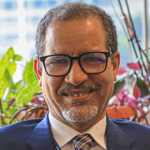
Senior Associates
Moctar Mohamed El Hacene
Leader of the Shared Economic Prosperity Cluster,...
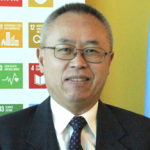
Speakers
Li Junhua
Under-Secretary-General for Economic and Social Affairs, United...
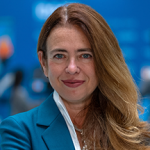
Speakers
Roberta V. Gatti
Chief Economist, Middle East and North Africa,...
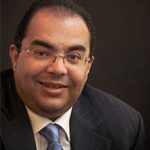
Senior Associates
Mahmoud Mohieldin
Professor, Department of Economics - Cairo University,...
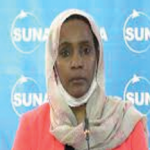
Speakers
Sara Hassanain
Former Acting Minister of Health, Sudan
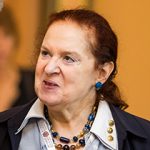
Research Fellows
Heba Handoussa
Interim Managing Director, Economic Research Forum
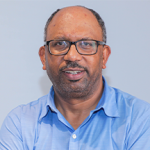
Research Fellows
Touhami Abdelkhalek
Full Professor, Africa Institute for Research in...
Videos
Plenary 4 – AI and Future of Work
Date
22/04/2024
Location
Hybrid Event
Time
From 4:00 pm To 5:30 pm
Disruptive technologies at large and AI specifically, will surely impact inequality, but the nature of that effect will depend on exactly how this technology is adopted. The plenary would set forward how to deploy generative AI to create and support new occupational tasks and new capabilities for workers. How public policy has a central role in encouraging this positive path of technology would also be addressed.
All sessions follow Morocco (Casablanca) time zone
Speakers
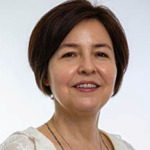
Research Fellows
Asena Caner
Professor of Economics, TOBB-University of Economics and...
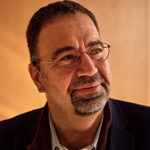
Speakers
Daron Acemoglu
Institute Professor, Massachusetts Institute of Technology
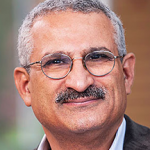
Research Fellows
Ragui Assaad
Professor and Freeman Chair for International Economic...
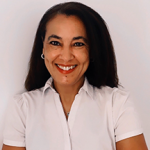
Research Fellows
Najat El Mekkaoui
Professor of Economics, University Paris-Dauphine
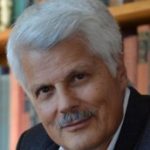
Research Fellows
Djavad Salehi-Isfahani
Professor, Virginia Tech University
Videos
Agenda
Plenary 5 – Relocalization and Regional Cooperation in an Increasingly Shock Prone Global Economy
Date
23/04/2024
Location
Hybrid Event
Time
From 9:00 am To 10:30 am
The changing global environment calls for a new push for Arab economic cooperation and integration, taking into account: the current geopolitical situation; the possible intra-Arab value chains and how they could be developed; potential emerging areas for intra-Arab cooperation: digital market, power market, water and food security; possibilities for greater economic integration with neighboring regions, namely Sub-Saharan Africa, Asia, and Europe.
All sessions follow Morocco (Casablanca) time zone
Speakers
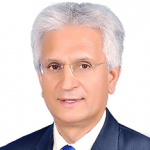
Speakers
Merza Hasan
Senior Advisor, Arab Fund for Economic &...
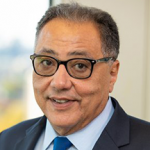
Research Fellows
Hafez Ghanem
Nonresident Senior Fellow, Brookings Institute; Senior Fellow,...
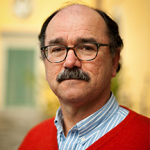
Senior Associates
Bernard Hoekman
Professor and Director, Global Economics, Robert Schuman...
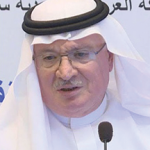
Research Fellows
Majid A. Al-Moneef
Secretary General, Supreme Committee on Hydrocarbon Affairs...

Research Fellows
Leila Baghdadi
Senior Economist, MENA Chief Economist Office, World...
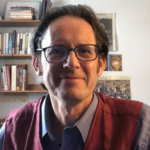
Speakers
Arjan de Haan
Senior Program Specialist, International Development Research Centre...
Presentations
Videos
Policy Panel – Morocco’s Quest for Stronger Inclusive Growth
Date
23/04/2024
Location
Hybrid Event
Time
From 4:00 pm To 5:00 pm
Morocco has managed to transform its economy over the last two decades thanks to a series of ambitious reforms. Driven by strong fundamentals and a stable macroeconomic framework, the kingdom has managed to attract foreign direct investments that integrated it into the global economy, particularly in semi-complex segments of the global value chains (GVCs). This includes the automotive industry, aeronautics, as well as the pharmaceutical industry. Following the recent adverse shocks, including the pandemic and the global surge in prices, the Moroccan economy exhibited strong resilience. Still, despite these significant efforts, growth has slowed down since 2011, leading to subdued and disappointing job creation. The labor market is characterized by structural deficiencies including high unemployment among the youth and skilled workers and a marked scarcity of female participation. Faced with this situation, Morocco has decided to change course with the adoption of a new model of development, which came with an ambitious reform track, giving the priority to human capital, as reflected in the recent generalization of social protection and the ambitions to climb up the complexity ladder in global value chains.
- How will the change in the economic environment impact growth enhancing policies in Morocco?
- What factors explain the employment puzzle of the Morocco? What specific measures has Morocco implemented to address youth unemployment and skill mismatches in the labor market?
- What are the new policy priorities of the Moroccan economy and is there room for comprehensive industrial policies?
Speakers
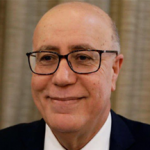
Speakers
Marouane El Abassi
Former Governor, Central Bank of Tunisia
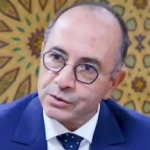
Speakers
Noureddine Bensouda
Director, Trésorerie Générale du Royaume, Morocco

Speakers
Karim El Aynaoui
Executive Vice President of Mohammed VI Polytechnic...
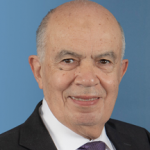
Speakers
Fathallah Oualalou
Senior Fellow, Policy Center for the New...

Research Fellows
Touhami Abdelkhalek
Full Professor, Africa Institute for Research in...
Videos
Closing Session – Celebrating Excellence– ERF Best Papers Awards Ceremony
Date
23/04/2024
Location
Hybrid Event
Time
From 5:00 pm To 6:00 pm
All sessions follow Morocco (Casablanca) time zone

